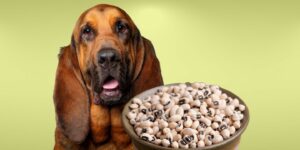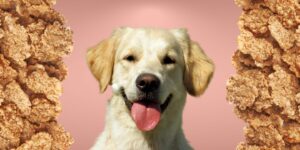Yes, dogs can eat pumpkin seeds in moderation. Pumpkin seeds, also known as pepitas, are the edible seeds of the pumpkin and are a good source of vitamins, minerals, and other nutrients that can benefit a dog's health.
Nutritional Benefits of Pumpkin Seeds for Dogs
Vitamins and minerals
Pumpkin seeds are an excellent source of various vitamins and minerals, which include:
Vitamin E
This fat-soluble vitamin boosts the immune system and provides antioxidant properties that can help protect your dog's cells from damage.
Vitamin K
Essential for blood clotting and bone health, vitamin K plays a key role in your dog's overall wellness.
Zinc
Zinc is vital for maintaining a healthy immune system and is involved in numerous metabolic processes in your dog's body.
Iron
Iron supports the production of red blood cells, which are responsible for carrying oxygen throughout your dog's body.
Magnesium
Magnesium is fundamental for muscle function and helps support a healthy nervous system.
Omega-3 fatty acids
Pumpkin seeds also contain omega-3 fatty acids, which can help to support a healthy heart and reduce inflammation in the body.
Antioxidants
The antioxidants found in pumpkin seeds can help neutralize free radicals and protect your dog's cells from damage, potentially reducing the risk of chronic diseases.
Fiber content
Pumpkin seeds are also a good source of dietary fiber, which supports healthy digestion in dogs.
Serving Size for Dogs
Calculating the appropriate serving size
When feeding pumpkin seeds to your dog, it is important to consider the serving size. Pumpkin seeds should be fed in moderation as part of a balanced diet. A good rule of thumb is to offer your dog about 1/4 teaspoon of pumpkin seeds per 10 pounds of body weight.
Incorporating pumpkin seeds into a dog's diet
You can mix pumpkin seeds into your dog's regular food or offer them as an occasional treat.
Frequency of feeding pumpkin seeds
Feed pumpkin seeds to your dog no more than once or twice a week to avoid overconsumption.
Risks and Precautions
High fat content
Pumpkin seeds can be high in fat, so it is important to feed them in moderation to avoid potential weight gain and prevent issues such as pancreatitis.
Choking hazard
Pumpkin seeds can be a choking hazard for dogs, especially small breeds. Make sure to offer them in a size that is appropriate for your dog's size and chewing ability.
Shell removal
It is important to remove the shells from pumpkin seeds before feeding them to your dog, as the shells can be difficult for dogs to digest and may cause intestinal blockage.
Preparation Methods for Pumpkin Seeds
Raw pumpkin seeds
Raw pumpkin seeds can be a healthy option for your dog, just ensure they are properly cleaned and de-shelled.
Roasted pumpkin seeds
You can roast pumpkin seeds for your dog, but make sure not to add any salt or seasoning.
Grinding pumpkin seeds
Grinding pumpkin seeds into a powder can make it easier for your dog to consume and digest them.
Incorporating pumpkin seeds into dog treats
You can also make homemade dog treats using pumpkin seeds as a nutritious ingredient.
Alternative Seed Options for Dogs
Other healthy seed options for your dog include:
- Chia seeds
- Flaxseeds
- Sunflower seeds
- Sesame seeds
Conclusion
In conclusion, dogs can safely eat pumpkin seeds in moderation as part of a balanced diet. Pumpkin seeds are a nutritious and health-supporting food that can provide a number of benefits for your furry friend. Just be sure to feed them in moderation, remove the shells before offering them to your dog, and consider the various preparation methods to ensure the best experience for your pet.











